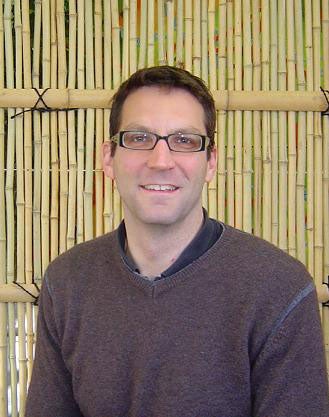The view from the eco-experts

The fashion designer
Safia Minney, founder of People Tree
Our sales to ethical and fair-trade fashion boutiques have doubled on last year's figures, but a lot of our customers are tightening their belts – there is a chance they'll shift back to fast, cheap fashion. I'm sure the top brands will benefit, but companies such as ours are under threat. Even so, we're still doing well at the moment, because consumers are becoming more considered in their spending habits – they're buying less and buying better quality clothing. They're also re-styling existing clothes and accessorising – we've seen very strong jewellery sales, for example.
The green homeware expert
Edwin Lloyd, Managing director of www.mygreener home.co.uk
I've been able to capitalise on the growth of internet retailing and the green pound, and I think both those forces are still growing. So even if consumers begin to spend less, I can absorb the impact. There are two types of products that environmentally aware people buy. There are conscience items, such as recycled paper or bio cleaning products, which cost more but are greener. Then there are the energy-saving products, like those gadgets that stop you leaving your television on stand-by, or eco kettles that are not only green but save the consumer money. It's the conscience products that are under threat, while I think I'll be seeing increased demand for the energy-saving products.
The organic entrepreneur
Jo Fairley, co-founder of Green & Blacks and owner of Judges Bakery, Hastings
I think it would be very sad if the credit crunch meant people stopped buying organic food. I don't think it will happen – we buy organic because it fits with our principles, not as a lifestyle choice. Our tills are still ringing and I think people are prepared to make sacrifices – there are things they'll give up before they start depriving themselves of good food. We can cut grocery bills by relying less on meat and throwing less away – we bin 30 per cent of the food we buy. Waste is not green. I think the economic downturn could be the best thing that happened to the planet because we'll spend less money on the things that aren't important.
The eco-tourism trailblazer
Paul Giess, Director at Baobab Travel
Our bookings are the same as they were last year, but what we are noticing is that people are waiting until the last minute before committing. The main problem for us is the rise in fuel prices. Most of our holidays are at eco lodges in Africa and, for example, the cost of a ticket to South Africa has gone up £90 over the past month purely because of fuel duties. We're getting emails every day from our suppliers asking for more money. We've had to pass some of that on to our customers and the worry is that people will start going into high street agencies and buying package tours, staying in large hotels.
That would be a great shame, not only for us but for the countries they visit, because a lot of the money will go back to the UK and not stay on the ground, where green projects we travel to need it.
The green power generator
Mary Haddick, Managing director of Solar Power Scotland
We sell domestic thermal storage systems and have been busier in the past two weeks than we have for quite some time. Our systems absorb sunlight – even hazy sunlight – and use it to heat water, in some cases replacing the need for boilers and central heating altogether. They cost up to £6,000 to install, but you can expect to cut 70 per cent off your hot water bills over a year.
Most of our customers are not so much concerned about how quickly they'll make their money back as they are about saving on fuel bills straight away.
I suppose that people might be reluctant to make the investment if things get worse, but we're not there yet.
The politician
Alan Simpson, Labour MP for Nottingham South and green campaigner
Downing Street logic propels the Government to say it's too difficult to go green in the face of a recession, but my argument is that we're experiencing a series of global crises – climate change, the credit crunch, rising food and oil prices – that accelerate the case for going green. We're at the edge of a global systems meltdown and have to make huge changes in the next five years. Gordon Brown is going to have to make some sort of decision. If we had an ounce of vision, we'd understand that it's only the sustainable that's going to turn out to be affordable. My worry is that a recession will be used by those who've never wanted to go green as an excuse not to. The truth is that going green – and quickly – is the only way to counter a recession.
The eco-car importer
Steve Hartridge, Managing director of Goingreen, the UK importer of G-Wiz electric cars
It's really difficult to predict what's going to happen in the next year. Unlike some other green industries, the G-Wiz can be good for the pocket as well as making a statement. In some ways, the credit crunch is an opportunity for us. With rising oil prices and media hype about the cost of motoring, we can attract people who didn't have a second car to get a G-Wiz. Our cars are cheap to run, but they cost about £9,000 so I am worried that if people tighten their belts they might not spend, but I'm confident the G-Wiz will remain a viable alternative to a second car.
Subscribe to Independent Premium to bookmark this article
Want to bookmark your favourite articles and stories to read or reference later? Start your Independent Premium subscription today.

Join our commenting forum
Join thought-provoking conversations, follow other Independent readers and see their replies